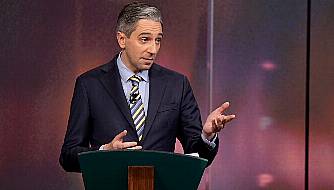Social Democrats TD Róisín Shortall has described the response of the Minister of State with responsibility for Mental Health to the report into deficiencies in the Camhs services as “anodyne”.
There had been no response from the Minister for Health or any Cabinet minister, she told RTÉ radio’s Morning Ireland.
“It's clear that these problems are urgent and need immediate attention by Government. And I want to hear whether the Government accepts this report or not. And do they commit to the full implementation of the recommendations of this important report?”
There had been no sense of urgency in the response by Minister of State Mary Butler. “It's basically saying all is fine. And I think there's an important point in all of this. All of this only came to light because of a whistleblower, Dr. Sharma, who was brave enough to speak out. He was treated appallingly by the HSE. He was sidelined. He was ostracised, he is a consultant psychiatrist, and he ended up resigning from his post and saying that he would never again work in this country. That is a terrible indictment of the culture within the HSE, which penalises people who have the courage to speak out."
Ms Shortall said the latest figures about Camhs delays and waiting lists were “just indefensible”. Shockingly, despite awareness of shortcomings in the service, waiting lists were growing, she said.
“There's now about four and a half thousand children waiting for services around the country. Over 1600 of those are waiting over six months. It's very hard to comprehend just what it must be like for those children and their parents who have serious mental health issues and are left waiting over six months and in some cases over 12 months.”
Ms Shortall pointed out that in the problematic area – the Cork and Kerry area where the issue first came to light – there is a waiting list of 1,000 children. “This is just indefensible at this point.”
There was no silver bullet solution, she said. Staffing remained an issue, but there were also fundamental issues as highlighted in Dr Finnerty’s report – of poor governance systems, centralised decision-making, the lack of data and the serious lack of funding.
“The reality is, there has been virtually no workforce planning going on within the HSE or the Department of Health for many years.” It was not just about recruiting for current positions, it was about forward planning setting out a 10-year plan taking into consideration projected population growth, ratios of staff to patients and determining what numbers of staff will be needed, what additional places needed to be made in third level courses along with clinical placements, she said.
“That's very, very basic stuff that should have been done. “







